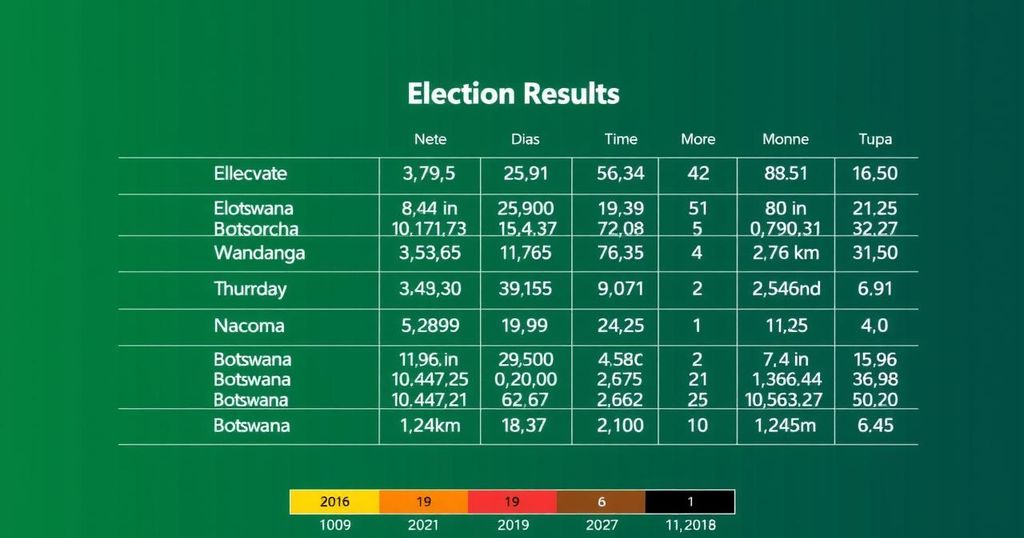Botswana’s recent elections have resulted in a historical shift as the long-ruling Botswana Democratic Party (BDP) has been ousted, winning only one seat. The Umbrella for Democratic Change (UDC), led by Duma Boko, is projected to secure a majority, setting the stage for Boko to become the new president. This marks a significant political change for the nation after decades of BDP governance, attributed to rising dissatisfaction due to economic challenges.
Botswana has experienced a significant shift in its political landscape as the ruling Botswana Democratic Party (BDP), which has held power for 58 years, has been ousted in the recent elections. Preliminary results indicate that the BDP secured only one parliamentary seat, a drastic fall from dominance since the nation’s independence in 1966. In stark contrast, the opposition party, the Umbrella for Democratic Change (UDC), helmed by human rights attorney Duma Boko, is projected to win approximately 20 seats, positioning itself to surpass the 31-seat majority needed to form the government. This anticipated outcome suggests that Duma Boko is likely to be chosen as the new head of state when parliament convenes. This election marks his third attempt at the presidency. Despite the BDP’s longstanding governance, issues such as stagnant economic growth and rising unemployment have contributed to its declining support among voters. Mokgweetsi Masisi, who has been in office since 2018, led the BDP through a campaign that failed to resonate with the electorate, who were not convinced that the party could deliver effective change for Botswana.
This political transition represents a pivotal moment for Botswana, a country known for its rich diamond resources and steady democratic governance. Since gaining independence in 1966, the BDP has been a dominant force in the nation’s politics, often credited with maintaining stability and promoting development. However, recent economic challenges and unemployment rates have led to growing dissatisfaction among the populace. The UDC’s emergence as a major political force indicates a desire among voters for a new direction and leadership that addresses the pressing socio-economic issues. Duma Boko’s leadership and reform-oriented agenda have resonated, particularly as citizens seek accountability and effective governance.
In conclusion, the recent elections in Botswana signal a transformative change in the country’s political dynamics, with the BDP’s enduring reign finally coming to an end. The elevation of the UDC to a position of power highlights a clear demand for new leadership. As Duma Boko prepares to assume the presidency, it remains to be seen how his administration will address the critical economic issues that have plagued the nation and restore public confidence in governmental capabilities.
Original Source: www.bbc.com






